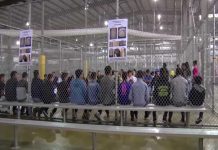
An Indiana judge has upheld a strict abortion ban, rejecting providers’ plea for broader medical exceptions.
At a Glance
- An Indiana county judge ruled against abortion providers seeking to expand access under the state’s heavy restrictions.
- Providers, including Planned Parenthood, sought a permanent injunction to broaden medical exceptions.
- Judge Kelsey Blake Hanlon denied the request, stating providers did not identify specific cases where the law prevented necessary abortions.
- Indiana was the first state to enact tighter restrictions after the U.S. Supreme Court overturned Roe v. Wade in 2022.
- The ban includes exceptions for the health or life of the mother, assault, incest, and lethal fetal anomalies in limited circumstances.
Judge Upholds Indiana’s Abortion Ban
In a significant ruling, an Indiana county judge has upheld the state’s strict abortion ban, dealing a blow to abortion providers who sought to broaden access. Judge Kelsey Blake Hanlon denied a request for a permanent injunction that would have expanded medical exceptions to the near-total ban and blocked the requirement that abortions be performed only at hospitals.
The decision comes after Indiana became the first state to enact tighter abortion restrictions following the U.S. Supreme Court’s overturning of Roe v. Wade in June 2022. The Indiana Supreme Court had previously upheld the state’s ban in June 2023, while protecting a woman’s right to an abortion when her life or health is at risk.
Providers’ Arguments and Judge’s Reasoning
Abortion providers, including Planned Parenthood, argued that the ban’s health exceptions were too narrow, causing doctors to avoid performing abortions even when legally permissible. However, Judge Hanlon’s 50-page order stated that providers did not identify specific cases where the law prevented necessary abortions.
“Significant and compelling evidence regarding the policy implications of S.B. 1 and its effect on medical professionals in particular was presented. However, the Court cannot substitute its own policy preferences for that of the Indiana General Assembly,” wrote Hanlon.
The judge acknowledged the challenges for physicians but stated they do not have to wait until a woman is clinically unstable to provide care. Hanlon also rejected the argument that mental health conditions constitute serious health risks and upheld the hospital requirement, stating that hospitals are better equipped to handle serious health risks and other conditions.
Reactions and Implications
The ruling has drawn mixed reactions from various stakeholders. Indiana Attorney General Todd Rokita praised the decision, calling the law “both reasonable and constitutional.” In contrast, Planned Parenthood and the ACLU of Indiana expressed deep concern, stating that the ruling means “lives will continue to be endangered by Indiana’s abortion ban.”
Indiana's pro-life law is both reasonable and constitutional, and we're pleased the Monroe County Circuit Court upheld it. This is another huge win for life and no matter how many times Planned Parenthood tries to sue and push forward their culture of death, we will continue… https://t.co/8MRcGmSwBS
— AG Todd Rokita (@AGToddRokita) September 11, 2024
The plaintiffs are considering their options for appeal, highlighting the ongoing legal battles surrounding abortion rights in the wake of the Roe v. Wade reversal. Indiana’s case is similar to those in other states where abortion-rights groups have challenged post-Roe bans, citing state constitutional protections.
Broader Context and Future Implications
Indiana is among over 20 Republican-led states that have banned or restricted abortion following the U.S. Supreme Court’s 2022 ruling. The state’s ban includes exceptions for the health or life of the mother, assault, incest, and lethal fetal anomalies in limited circumstances. The ban defines a serious health risk as a “serious risk of substantial and irreversible physical impairment of a major bodily function.”
As the legal landscape continues to evolve, at least nine states are expected to vote on ballot measures to guarantee abortion rights in the upcoming November 5 election. This ruling in Indiana underscores the ongoing national debate over abortion access and the balance between state regulations and individual rights in the post-Roe era.
Sources
- Indiana judge rules against abortion providers fighting near-total ban
- Indiana judge rules against abortion providers fighting near-total ban passed in 2022
- Indiana judge refuses to broaden medical exception to abortion ban

















